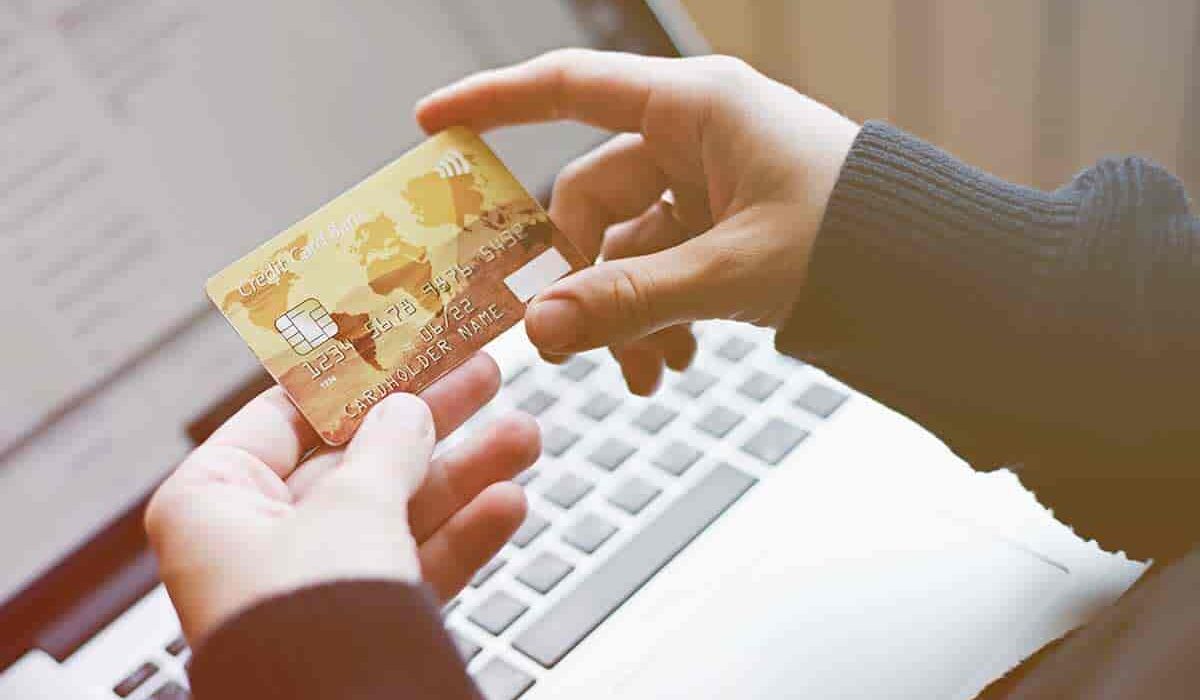3 simple examples to understand how credit cards work
Using credit cards is a very common way to make purchases, but it’s actually a very different way of spending money than the other methods we use.
Credit cards allow you to borrow money up to a certain amount and pay it back in smaller segments that are easier for you to manage. Before getting your first credit card there are important things to know about credit cards so you can avoid making huge financial mistakes.
Sometimes we need a little extra help when making large purchases, and these are the situations when having a credit card can be extremely helpful. But you must understand exactly how credit cards work to use them correctly, so read on to learn everything you need to know.
What Exactly Is a Credit Card?
A credit card is a small plastic card- just like your debit card- that lets you access a certain amount of money, called a credit limit, to use for purchases. The credit limit is decided by the issuer of the credit card, and it is the total amount of money that you can borrow at a time using your credit card. As you pay off the money that you’ve borrowed, your ability to borrow comes back.
Credit cards make large purchases possible for those who don’t have the exact money in their bank account at the time they need to make the purchase. It breaks spending down into more manageable chunks so you can purchase the items you need immediately.
Having a credit card sounds like a great deal, but you should never use your credit card without knowing exactly how paying off your balance works to avoid paying much more than necessary.
How Does Paying A Credit Card Off Work?
Knowing how to pay off a credit card is an extremely crucial part of owning one. If you don’t know how to manage your credit card, you could find yourself paying a lot of money in interest or even falling into a cycle of debt.
So here is how it works. You, the borrower and owner of the credit card, are given a credit limit. This is the maximum amount of money you can spend using the card. You are also given an allotted time in which to pay back this entire amount of money you have borrowed. This period is typically about 21 or so days, which is why you see most people trying to pay off their credit card balance each month.
But what happens if you don’t pay back in full at the end of this period? This happens all the time and is an expected part of having a credit card for most owners. But it’s not ideal for you! The credit card company will charge you interest on the remaining balance after each due date until it is paid in full. The amount of interest rate that you pay is dependent on which credit card you have.
Therefore, the ideal scenario would of course be to pay off the full amount before the interest rate is activated. However, with very large purchases that one wouldn’t expect to pay off in a month, it’s important to calculate how much in interest you’ll also likely be paying overtime. Some stores and cards offer 0% interest rates on certain purchases, which you can consider.
Another important thing to understand about credit cards is that you MUST make a payment at the time that money is due. Like we said above, if you don’t pay in full, you will start accumulating interest on the balance. However, if you don’t even pay a predetermined minimum monthly payment, you can be charged late fees. Always make a minimum payment at the due date to avoid any penalties.
When it comes to paying off a credit card, you should always try to pay as much as you can. Paying only the minimum is a slow and expensive way to pay off your balance due to the growing interest. Always know your interest rates, minimum payments, and due dates!
Is A Credit Card Even Worth It?
You should consider the pros and cons of having a credit card before signing up for one. Your income and spending habits can help you decide if having a credit card is even worth it. It can be tempting to spend with your credit card because it feels inconsequential until the payment is due. You can easily fall into debt if you are not careful with your credit card spending.
Spending without thinking carefully can lead to you:
- Overspending on things you don’t really need or that are too expensive for you to pay back efficiently
- Missing minimum payments because you can’t afford to pay them or have forgotten that you even spent the money with your card
- Losing more money in the long run due to interest rates and late fees
Improper use of a credit card can also negatively impact your credit score. This makes your life much harder in the future. For example, a bad credit scores means:
- It will be harder to take out loans in the future that you really need, such as for school or for a home.
- You are less likely to get approved for another credit card or be accepted by credit companies who have good rates.
- You might have challenges doing necessary things, like even renting an apartment!
If you struggle with spending habits and managing your money, getting a credit card can be a dangerous choice. For the reasons listed above and more! On the other hand, there are many pros to having a credit card that make it worth having if you use it responsibly.
- If you pay off your card on time and frequently, you build your credit score up. This makes purchases and loans easier in the future so you can build the life you want!
- Relieve some of the stress of making large purchases by paying what you can over time.
- Some credit card companies offer rewards for using their card. This could give you money BACK on purchases, which wouldn’t happen with a debit card or with cash. Some cards offer other rewards like points towards travel.
- Credit cards are more protected from fraud than debit cards and cash. Stolen money from these sources is gone immediately, while with a credit card, you can report suspicious behavior, cancel payments and notify the credit company of fraud.
- Some purchases are easier made with credit cards, such as hotels and car rentals.
As long as you understand your credit card and how it works and are committed to using it appropriately, having a credit card can be completely worth it.
3 Simple Examples to Understand How Credit Cards Work
Hopefully, you understand a little bit more about how to use a credit card. They can be very helpful or they can be tricky and dangerous. Use these simple examples to better understand exactly how credit cards work.
Paying Off Your Full Credit Card
Say you have a credit card with a credit limit of $1,500 and the credit card payments are due on the 25th of each month. In May, you use your credit card to make a few purchases that totaled up to $1,000. You still have $500 more dollars in available credit, but you don’t use it. On or before May 25th, you pay the credit card company $1,000- your full balance.
You will have no outstanding balance going into the next month and you paid on time. So, there will be no interest payments added to your card balance and no late fees.
Using The Minimum Payment on Your Credit Card
Most credit cards don’t require you to pay the balance in full when your payments are due. This month, you’ve spent $1,200 on your credit card. You know that your credit card payments are due on the 25th, but you also know that you won’t have the full $1,200 by then to pay back the full balance.
However, your minimum payment of $30 is due no matter what on the 25th. You send in a payment of $200. Your available credit goes back up by $200 and since you paid at least $30 of your balance, no late fees will be due.
However, you will be responsible for an interest charge based on your interest rate. In this case, your remaining balance is $1,000. If the interest rate for this purchase was 20%, you will now owe 20% of $1,000 on top of the balance. That’s $200 extra dollars!
Paying at least the minimum amount required by your credit card company on time each due date will help you keep a good credit history and avoid paying too many extra fees. But you will pay interest fees if they apply.
Not Making Payments On Your Credit Card
Your credit card limit is $1,500, but this month you only had to use your credit card for $800 worth of purchases. The due date is the 25th, but you don’t remember until the 30th to make a payment. When you rush to your online portal or however you pay, your balance will no longer just be the $800 that you actually spent.
You will also see a late fee, predetermined by the credit card company. Plus, if an interest rate applies to your credit card and purchase, this will also be there. The months that you do this also negatively affect your credit score, so you want to avoid missing payments.
What Is A “Card Network” And How Are They Different?
A credit card network is a company that works as the middleman between merchants (stores where you shop) and the card issuers. The card issuer is the financial institution that gives you the card and sets the credit limits. The network processes the transactions and transfers the payments between entities.
There are four major card networks:
- Mastercard
- Visa
- American Express
- Discover
The network has a payment infrastructure that helps the transactions happen between merchants and consumers. The card issuer is the one paying the merchant for you, but the payment goes through the card network to do so. After you make a purchase using your card by swiping it, the card network approves or denies the transaction and sends the payment.
The main differences between these credit card networks are, that some also function as card issuers as well. American Express and Discover are both card networks and card issuers, while Mastercard and Visa are only card networks.
Be Smart When Using a Credit Card
Having a credit card can be extremely helpful. It makes paying for things a lot easier, especially large purchases. It can also help you build up your credit score so you can establish yourself as trustworthy when it comes to managing your personal finances. And then you can take out loans or get rentals without any difficulty.
However, it’s important to understand exactly how credit cards work before you get one. You have to know all of the details of using your credit card, from your limit to your minimum required payment. Making sure you keep up with your payments can help you avoid spending more money than you need to and get the most out of your credit card.




